EUROPE
Europe supports universities without borders
November 2018In a new call for proposals, the European Commission is allocating €30 million to the European universities project: a major step towards higher education without borders.

In a new call for proposals, the European Commission is allocating €30 million to the European universities project: a major step towards higher education without borders.

The French government has announced its support for the creation of a European territorial authority of Alsace, formed by the merger of the Bas-Rhin and Haut-Rhin Departments. It will be set up as of 1 January 2021. “We will support the elected representatives in their desire for Alsace. This will all be within the Grand Est Region – not a special status, but an authority with particular competences that derive notably from the cross-border setting and Alsace’s Rhineland identity,” stated the Minister for Territorial Cohesion, Jacqueline Gourault.

This eighth edition, which runs to 160 pages, is aimed at French cross-border workers who work in Luxembourg. It gives an overview of the legislation in force, setting out the principal rules to which these workers are subject in the areas of labour law, social security and tax law.

Citizens turned out for the citizens’ consultation held on 27 October by the Lille-Kortrijk-Tournai Eurometropolis, the MOT and the Jacques Delors Institute. This was a thoroughly European story.

This new platform of the Lille-Kortrijk-Tournai Eurometropolis is aimed at developers of cross-border projects who wish to raise their profile, to find partners on the other side of the border, or who require assistance in implementing their project.

What European tools should be used to step up the energy transition? And what policies should be adopted to foster mobility among young people and learning the language of the neighbouring country’s? In Haguenau on 25 October, the citizens’ consultation organised with the MOT and the Jacques Delors Institute in the PAMINA Eurodistrict, with the support of Vincent Thiébaut, MP for the Bas-Rhin Department, brought together a hundred or so citizens to discuss the actions they would like Europe to implement in the cross-border setting.

A brochure published by the European Committee of the Regions presents examples of good practices by EGTCs across Europe.
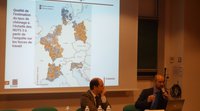
The proceedings of the seminar on "Territorial observation and assistance with decision-making in cross-border regions" hosted by the MOT and UMS RIATE (Interdisciplinary network for territorial development and cohesion in Europe and neighbouring countries) on 17 September in Paris are online, together with all of the presentations made at the seminar.

On 22-26 October, the MOT coordinated and accompanied the study visit of a delegation made up of representatives of ministries and local authorities from Haiti and the Dominican Republic.

The Nouvelle Aquitaine-Euskadi-Navarra Euroregion has received two European prizes: the EGTC prize, awarded by the Committee of the Regions at the EGTC Platform on 8 October, and the "Sail of Papenburg" prize awarded by the AEBR.
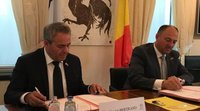
An enhanced cooperation agreement between Wallonia and the Hauts-de-France Region was signed on 15 September. It covers territorial development, mobility and jobs and reaffirms the desire to complete the planned linking up of the Seine-Escaut Canal on the Belgian side and the Seine-Nord Europe Canal on the French side.

On 18 September 2018 the sixth work meeting of the Cross-Border Strategic Committee (CSC) took place, which had not met since April 2015. Set up in 2013, the CSC brings together representatives of the ministries in charge of territorial development in France and its neighbours: Germany, Switzerland, Spain, Italy, Luxembourg, Belgium and Andorra, as well as their statistical institutes.
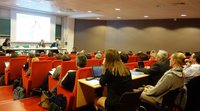
The MOT and UMS Riate* hosted a seminar entitled “Territorial observation and assistance with decision-making in cross-border regions” on 17 September in Paris. It brought together 60 people in order to discuss this crucial subject.

On 20-22 September 2018 the General Assembly of the AEBR was held in Oulu, in Finland – in the heart of the Bothnian Arc, the Nordic countries’ cross-border organisation supported by the Nordic Council.

The MOT took part in the 8th EGTC Platform, which took place on 8 October at the European Committee of the Regions in Brussels. The meeting was an opportunity to celebrate the activities of the groupings and to welcome the new EGTCs.
Why is Europe disorganised? What cross-border projects does the EU fund? Why is it important to vote in the European elections? On 5 October a cross-border citizens’ consultation was organised in Nice by the MOT, the Jacques Delors Institute, the Nice-Côte d’Azur Metropolis and the Alpes Maritimes European Movement.

Two cross-border citizens’ consultations were held on 18-19 September 2018 by the MOT, the Jacques Delors Institute, the European Cross-Border Grouping and the Metropolitan Pole of the French Genevois in Saint-Genis-Pouilly and Annemasse. Around 50 citizens attended on both days to talk about their day-to-day experience of the border and express their expectations and wishes with regard to Greater Geneva and the EU.
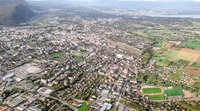
On 14 September the Swiss Government introduced its bill concerning the funding of “Third generation conurbation projects”.
A new French law on the freedom to choose one’s professional future, adopted on 1 August 2018, introduced a simplified system of administrative procedures for employers located outside France that temporarily post workers to France. This substantial simplification of administrative procedures should in particular encourage the posting of workers within cross-border regions where people live collectively regardless of the national borders that cut across them.
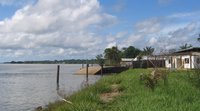
The MOT has created a new section [in French] on its website devoted to cross-border cooperation in France’s overseas territories. It consists of a general introduction to the geography of and important issues in these areas, then describes the cooperation in three regions concerned: the Indian Ocean, the Caribbean and Amazonia.
On 24 August 2018, representatives of France, Andorra and Spain approved the creation of a new cross-border park: the “Three Nations Pyrenees Park”. This new park results from the merger of four already existing parks: the Alt Pirineu Nature Park in Catalonia, the Ariège Pyrenees Regional Nature Park and the Sorteny Valley and Comapedrosa Valley Nature Parks in Andorra.
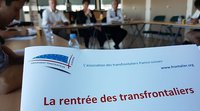
In a press release issued in September, the European Cross-Border Grouping provides updates on the major issues of the autumn for Franco-Swiss cross-border workers, such as the “national preference lite” introduced in Switzerland, the payment of cross-border workers’ unemployment benefit by Switzerland and taxing income at source.
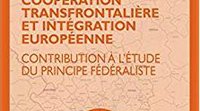
By Manuel Goehrs, published by Peter Lang, 2018 - in French. "By observing the mechanisms of cross-border cooperation in the European Union, this book proposes to investigate the legal bases for an ‘integral’ federalism or a ‘personalist’ federalism."
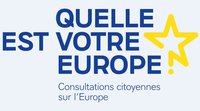
The MOT has partnered with the Jacques Delors Institute to promote the organisation of citizen consultations at the cross-border level. This mobilisation has allowed the holding of five consultations in partnership with a number of MOT members.
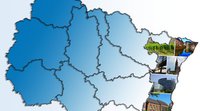
The French prime minister has entrusted the Prefect of the Grand Est region with a mission relating to the institutional solutions available to give form to the “longing for Alsace”.